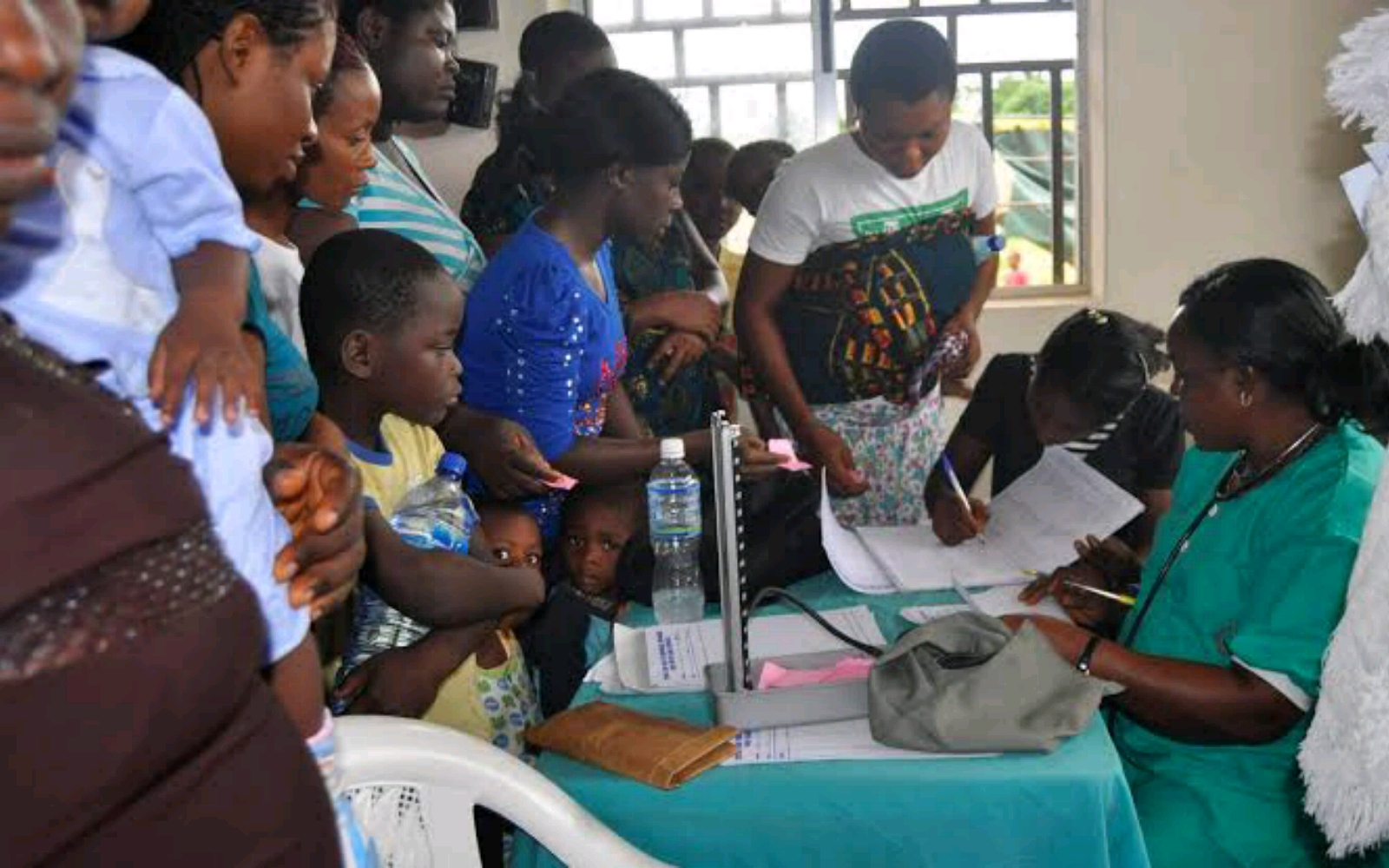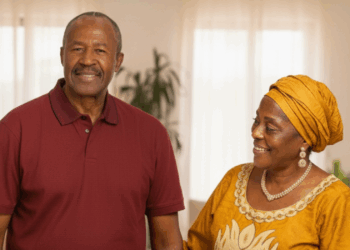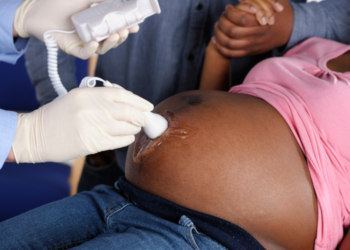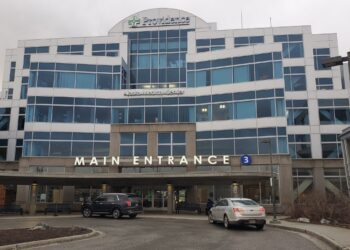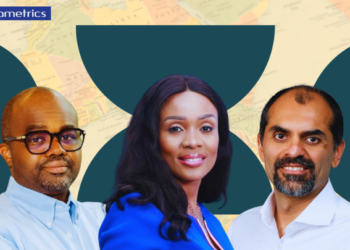It almost goes without saying that, the Nigerian healthcare system is in an abysmal state. With an estimated population of over 180 million persons, health and healthcare statistics in Nigeria are nothing short of depressing:
- Life expectancy at birth in Nigeria stands at about 55 years;
- Infant Mortality rate stood at 201 per 1,000 live births;
- Mortality rate 2016 was estimated at 12.5% per 1000 people;
- Five Hospital beds per 10,000 people
- A density of about 4 physicians per 10,000 people
- A density of about 16 nurses per 10,000 people
- A pharmacist-to-population ratio of 1:12,000
- Estimated number of Health Facilities (Private and Public) is about 30,000
Nigeria was ranked 187th out of 191 nations in the World Health Organization (WHO) analysis of world
health systems in 2017. - A staggering 30% of Nigerians have been estimated to be suffering from one mental illness or another
(Data Sources: Tech Cabal, WHO Work Force Reliance Report 2016, Trading Economics.com, Nigerian
Association of Hospital and Administrative Pharmacists (NAHAP), Nigerian Bureau of Statistics).
Health expenditure in the 2018 budget was about N340.456 billion – amounting to only 4%, as opposed to the 15% benchmark set by the African Union (AU); the country has never met up with half of the health
financing recommendation. This implies a less than N2,000 per capita expenditure in 2018.
Given the poor state of the Nigerian healthcare system, it is no surprise that a whopping 88% of Nigerian doctors seek opportunities abroad, as reported by NOIPolls in partnership with Nigeria Health Watch; it has been reported that 2,000 doctors leave Nigeria on a yearly basis. Reasons cited for the exodus of doctors
from the country include high taxes and deduction from salary (98 per cent), low work satisfaction (92 per cent), poor governance issues, poor salaries and emoluments (91 per cent) and the huge knowledge gap that exists in the medical practice abroad (47 per cent) as major reasons. General Medical Council (GMC)
UK, in July, 2017 estimated that over 4,765 Nigerian doctors are working in the UK. The implication of the continuous migration, according to the report is that it will further worsen the physician-patient ratio in Nigeria from 1:4,000 to 1:5,000.
Addressing concerns of shortage of doctors in the country, the Minister for Health, Professor Isaac Adewole quotes the data provided by the Medical and Dental Council of Nigeria (MDCN) stating that there are approximately 45,000 practicing doctors in Nigeria (out of 80,000 doctors registered with the institution). This would imply that the doctor to population ratio is at 1:4088. He also compared the statistics with those of other countries, citing 1:1235; 1:14,000; 1:118,000, 1:16,000 and 1:40,000 in Egypt,
Tanzania, Ethiopia, Kenya and Cameroon respectively. However, this is still far from the World Health Organisation (WHO) threshold of 1:600 doctor-to-patient ratio. He further explained the challenge of uneven distribution of doctors between urban and rural areas, stating that 50% of doctors are located in and around Lagos and Abuja, while rural areas suffer a dearth of skilled personnel.
He added that the Federal government had initiated the “One-Eleven” scheme, which encourages doctors in the diaspora to work for one month and enjoy an eleven-month holiday in the country, as a means of attracting doctors to Nigeria.
Health Insurance penetration in Nigeria was reported by Agusto & Co. to be at about 5.1% in its 2018 Health Maintenance Organizations (HMO) Report. This implies that most Nigerians adopt the out-of-pocket medium for footing medical and healthcare-related bills. Cost of healthcare on a global scale is generally expensive and constitutes a burden for most people: according to WHO, about 100 million
individuals sip below the poverty line following huge healthcare expenditure.
Following this harsh reality of high cost of healthcare, Leading Economist, Tunji Andrews, a renowned economic pundit, kick started the #OneSicknessAwayFromPoverty as a means of promoting awareness on the need for adoption of health insurance schemes by Nigerians.
However, as can be seen across many other sectors in the Nigerian economy, we are beginning to witness the emergence of entrepreneurs and businesses who seek to revolutionise the healthcare sector. Speaking at a symposium organised by Investment One Financial Services recently, tagged “Ideas Shaping the Future”, Dr Tokunbo Alli, Managing Director of AXA Mansard Health Insurance, spoke extensively on the opportunities for digital and technological innovation in the healthcare space, citing wearable devices,
non-invasive surgeries, real-time patient-professional consultation, amongst many others. As seen in the financial sector, the telecommunications sector, the manufacturing sector, et al, entrepreneurs are accepting responsibility for solving the challenges that are endemic in the Nigerian healthcare system. This article attempts to beam the spotlight on a few of them.
The likes of Flying Doctors Nigeria, Life Bank, Helium Health, Find-a-med, Omomi, Mobidoc, Safermom amongst many others, such as Redbank, Wellahealth, Meditell, etc.
Helium Health
Helium Health seeks to combat the inefficiencies of paper-based health record keeping, by providing an all-in-one electronic medical record for hospitals and healthcare institutions across Africa,
by integrating services such as hospital management and insurance, medical billing, digital medical record keeping etc, in a single digital platform. Helium Health is currently being utilised by over 5,000 doctors across over 70 hospitals. Some of the hospitals currently utilising Helium Health’s product include Paelon, St Francis, Medison, CASS, amongst many others.
Its founders were recently inducted into the Forbes 30 under 30 healthcare class of 2019. Helium Health has been a recipient of many recognition, both national and international, such as Nigerian Healthcare
Excellence Awards nomination (2017 & 2018), Google Launchpad Class 5 (2018), Y-Combinator Summer 2017 Batch, Aso Villa Demo Day – where they were recognised by the President. Since the launch of its MVP in 2016, it has raised over $2 million in funding and grants, from various sources, such as Y-Combinator,
World Bank, Etisalat, Western Tech, GreenHouse Capital, Cantos Ventures, A-Level Capital, angel investors.
Safer Mom
Safer Mom is a mobile platform that seeks to boost health literacy amongst pregnant and nursing mothers, using mobile technology. It helps them monitor and track their pregnancy and the development of the baby (for children up to 1 year), providing them with healthcare information in order to make informed health decisions regarding their child(ren). Healthcare providers are able to interface with these mothers on a real-time basis. Safer Mom was announced one of the top 6 at the 2015 Internet.org Innovation Challenge in
Africa organised by Facebook, and receiving a $50,000 cash reward. Safer Mom was cofounded by Olanrewaju Adeloye.
In its three years of existence since 2015, Safer Mom has garnered a number of awards and recognition, including The Queen’s Young Leader Awards, Western Union Foundation Chain of Betters Awards, a recognition from the Tony Elumelu Foundation, amongst others.
Mobidoc
Mobidoc is a digital platform where individuals are afforded the opportunity to receive consultation from verified healthcare professionals around the clock. The Abuja-based platform was founded by Timi Aiyemo and Abiodun Okunola in the light of the lack of infrastructure and availability of mobile technology in the
country.
Omomi
Omomi, a web and mobile based service that enables parents to easily monitor their children’s health, in order to make informed health decisions for their children. Omomi is a product by MOBiCure, a Nigerian social enterprise, which focued on harnessing mobile technology to provide solutions to healthcare challenges in the developing world. The platform claims to have provided services to about 30,000 mothers up till date.
Find-a-Med
Find-a-Med, a digital service that enables people to easily locate the nearest medical facilities around them. In a sense, it works like google maps, but for health facilities, and in addition it provides other features such as record keeping of users’ health information, enables users narrow their search for specific healthcare providers (e.g. search for nearest pharmacies, search for nearest optic centre, etc). Find-a-Med is a product of JumpSpace Communications, co-founded by Emeka Onyenwe.
Flying Doctors Nigeria
Flying Doctors Nigeria is the first Nigerian Air Emergency service, specialising in air ambulances, medevac, medico-logistics services, remote site medical solutions services, medical infrastructural development and medical training services. The business was founded by the precocious Dr Ola Orekurin, who has since become a poster girl for medical innovation in the country, stemming from a personal experience.
Life Bank
Life Bank, launched in 2016, is a platform that seeks to solve the problem of unavailability of blood for medical procedures, by making blood available “when and where it is needed in Nigeria to save lives”. This is done by mobilising blood donations from individuals, monitoring availability of blood across the country, and delivering blood in the right condition to the locations and points where it is needed. The business under its founder, Temie Giwa-Tubosun, has served over 500 hospitals, moved over 11,000 products, worked with over 6,000 donors: all culminating in over 2,000 lives saved.
Life Bank has received Coverage from
international media, including CNN and the BBC. Life Bank received $50,000 in September of 2018 from the MIT Global Challenge.
The challenges highlighted by some of the HealthTech and HealthCare Innovation startups include inadequate funding and inadequate government support. In the words of Adegoke Olubisi (Co-founder of
Helium Health), “governments are not trying to make decisions and change things very quickly”, while discussing the challenges of building a healthcare startup in a developing country. On the challenge of funding, a quick attempt to juxtapose the funding announcements by Nigerian fintech startups, HealthTech and Health Innovation startups shows a great disparity, particularly in a year such as 2018 where Fintech startups raised funding of over $30 million across various funding levels (Seed, Series A, etc): with Startups such as Kora Network, Paga and Paystack raising up to $12 million, $10 million and $8 million respectively.
However, despite the strides that have been recorded by these brave entrepreneurs and businesses, there remains a gorge between the Nigerian healthcare system and healthcare in the developed world.

